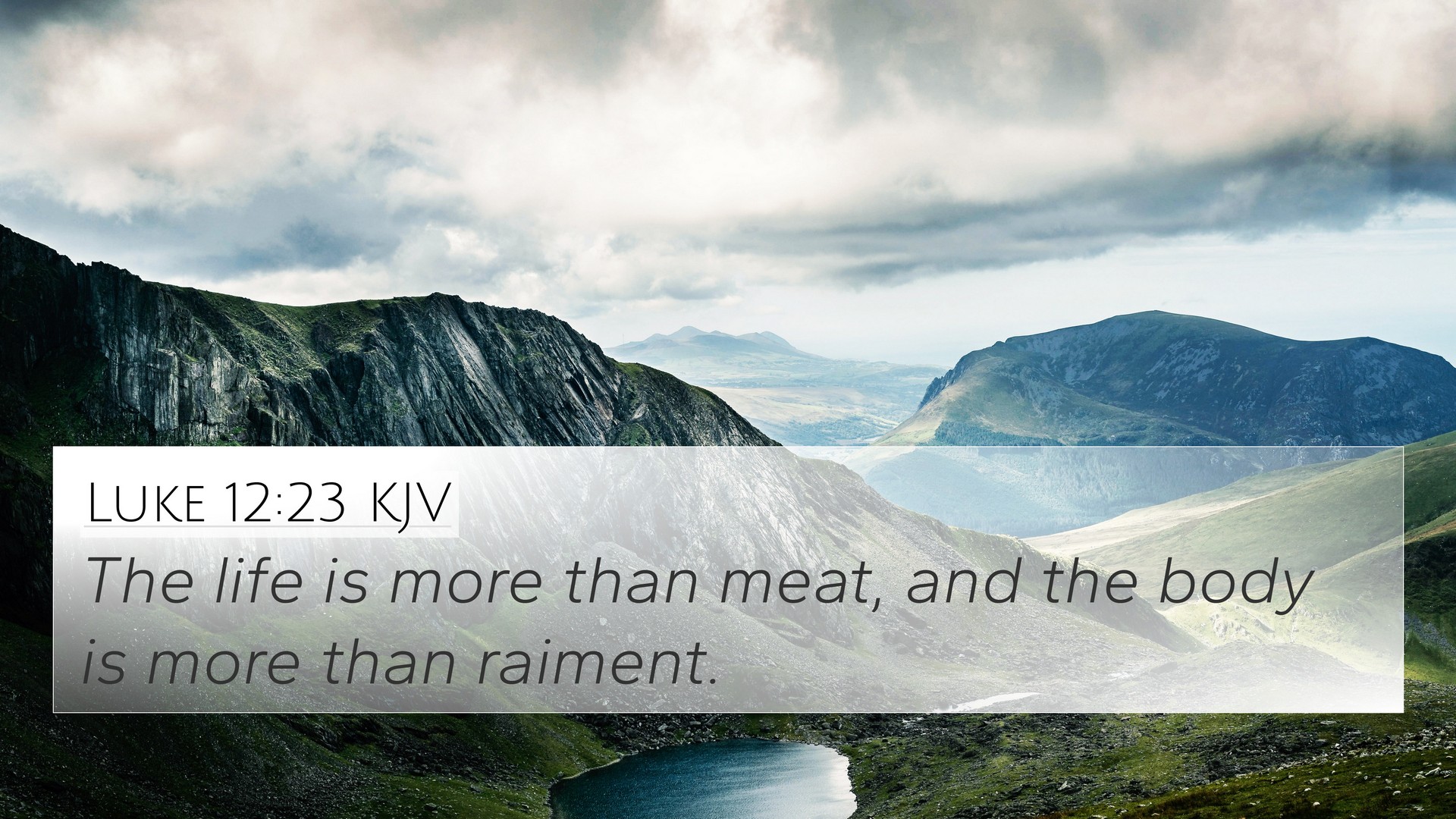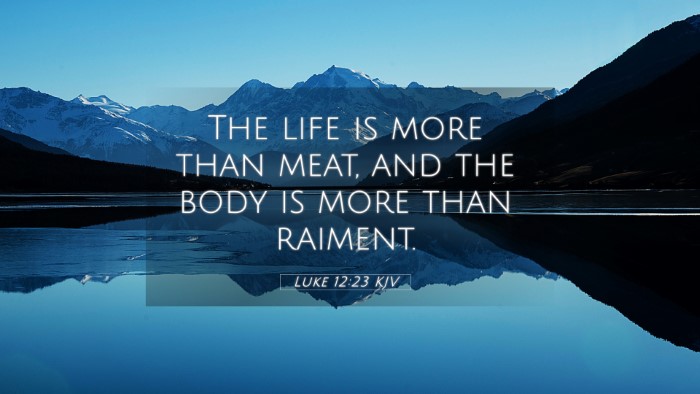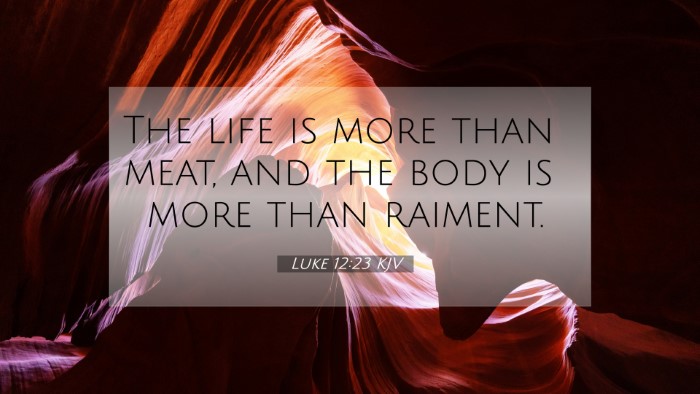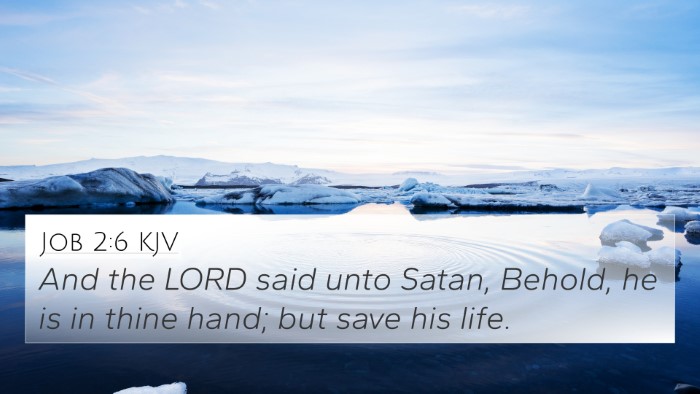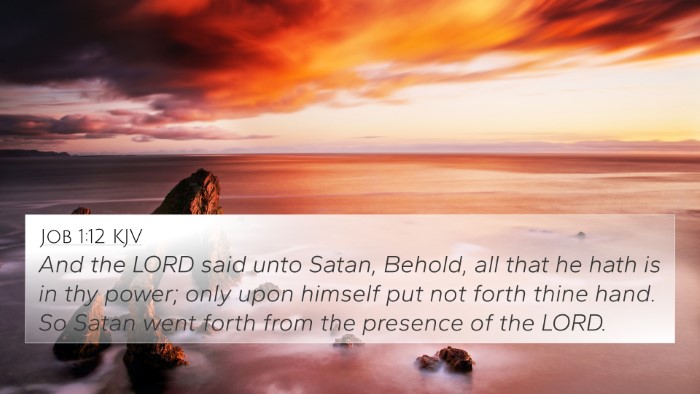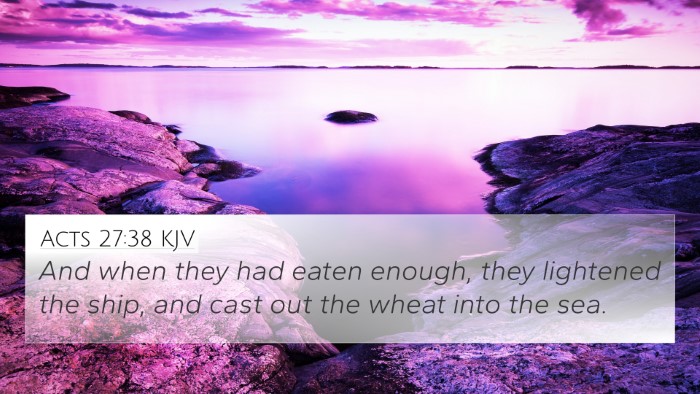Understanding Luke 12:23
Luke 12:23 states: "For life is more than food, and the body is more than clothing." This verse highlights the value of life and the importance of seeking eternal matters over temporary, physical needs.
Meaning and Commentary
This verse, found in the Gospel of Luke, encourages believers to reassess their priorities. Matthew Henry notes that Jesus seeks to draw our attention away from material concerns and directs it towards spiritual well-being. Life is not sustained merely by physical nourishment; rather, it is enriched through a relationship with God and fulfillment of spiritual purpose.
Albert Barnes explains that the context of this passage involves Jesus discussing anxiety related to material provision. He emphasizes that a person's worth is not determined by their possessions. To dwell excessively on the material can lead to spiritual neglect.
Adam Clarke further elaborates on the depth of this message by asserting that true life encompasses more than mere existence through food and shelter. It teaches that our ultimate fulfillment comes not from physical abundances, but from spiritual fullness that God provides.
Key Insights
- Value of Life: Life is portrayed as a profound gift from God, intrinsically more valuable than physical needs.
- Spiritual Focus: The passage invites believers to pay attention to their spiritual well-being over material concerns.
- Divine Provision: It reminds us that God cares for our needs beyond just the physical realm.
Cross-References
Luke 12:23 connects with several other scripture passages that reinforce its themes:
- Matthew 6:25-26: "Therefore I tell you, do not be anxious about your life, what you will eat or what you will drink, nor about your body, what you will put on. Is not life more than food, and the body more than clothing?"
- Philippians 4:19: "And my God will supply every need of yours according to his riches in glory in Christ Jesus."
- John 6:35: "Jesus said to them, 'I am the bread of life; whoever comes to me shall not hunger, and whoever believes in me shall never thirst.'
- Psalm 55:22: "Cast your burden on the Lord, and he will sustain you; he will never permit the righteous to be moved."
- 1 Timothy 6:7-8: "For we brought nothing into the world, and we cannot take anything out of the world. But if we have food and clothing, with these we will be content."
- Ecclesiastes 5:10: "He who loves money will not be satisfied with money, nor he who loves wealth with his income; this also is vanity."
- Matthew 4:4: "But he answered, 'It is written, Man shall not live by bread alone, but by every word that comes from the mouth of God.'
Thematic Connections
The message of Luke 12:23 becomes clearer when seen through the lens of other relevant biblical themes:
- Trust in God's Provision: Throughout the scriptures, God assures believers of His commitment to meeting their needs.
- Importance of Spiritual Over Physical: The Bible frequently contrasts spiritual riches with material wealth, underscoring the eternal value of faith.
- Human Worth: Scripture consistently affirms that human value is not defined by possessions, but by our relationship with God.
Practical Application
As followers of Christ, this verse encourages us to shift our focus from the pursuit of materialism to the pursuit of spiritual growth. In practical terms, we are reminded to:
- Prioritize Prayer: Seek God's guidance in all matters of life, recognizing that He knows our needs.
- Practice Contentment: Cultivate a spirit of gratitude for what we have, knowing that our true worth is found in Christ.
- Engage in Service: Invest time and resources in helping others, reinforcing the principle that life is about relationship and community.
Conclusion
In summary, Luke 12:23 is a powerful reminder of life's true purpose and the importance of prioritizing spiritual over material wealth. By recognizing the interconnectedness of Biblical teachings regarding our worth and God's provision, we deepen our understanding of how to live a life truly fulfilling in the eyes of God.
